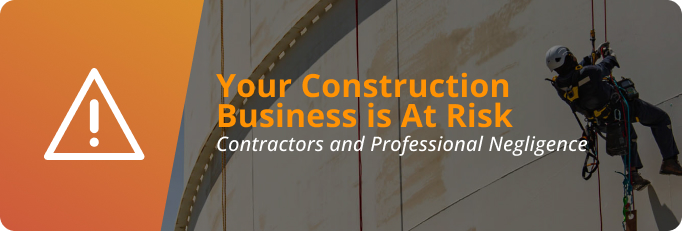What is Professional Negligence?
The term Professional Negligence is used very often, but not all of us know what it exactly means. Your construction company provides work and services in exchange for payment.
The law says that your work as a contractor must be undertaken with care and diligence. But things can (and often do) go wrong.
Are you Liable?
Dissatisfied clients lay claims against contractors for bad workmanship. It happens everyday across the United States. You are aware that this happens. In fact it has probably happened to yourself or someone you know.
But, did you know that you can protect your business from the financial implications of this kind of claim?

The construction industry is not the only one bound by these professional liability laws. They also apply to professionals like accountants, investigators, financial advisors, architects, and consultants.
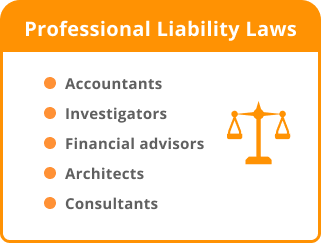
Acts of professional negligence include carelessness that affects the quality of the work you deliver.
Examples of Professional Negligence in Construction
Some examples of how things can go wrong:
- A survey or failing to detect subsidence, prior to investing in a property resulting in considerable rectification costs for the owners.
- Professional accountants and tax advisors fail to inform the client of new changes in laws resulting the client in breach of official laws.
- A investment consultant misrepresenting the facts about particular stocks causing losses to the investor.
- A professional valuer undervaluing a property, resulting in financial losses on the part of the seller.
- Defrauding the employer by collusion with sub-contractors.
Checklist of Your Responsibilities
You could find yourself facing professional liability claims for the following reasons:
- Breaking the rules.
- Non-compliance with applicable laws and standards of work.
- Failing to serve the clients’ best interests.
6 Legal Clauses your Contracts MUST Include
General contractors owe an obligation to produce work that mapplicable standards and desired quality of the client. Normally, the work standard is defined in a written agreement. This contract also sets out the scope of work.
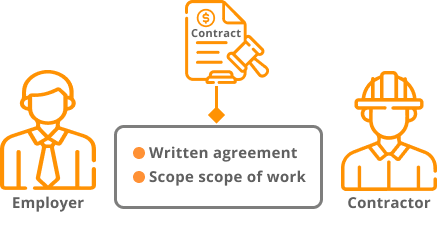
The initiating point for any dispute about construction work is the document of contract between employer and contractor. This is why it is important that your contracts should always include:
- The scope of the work involved
- The labor cost
- The construction materials
- Bills of quantities
- Time deadlines for the completion of project
- Late penalty clauses for over-running on the project and the work
- standards required
Contractors and Professional Negligence: a Short Case Study
Construction projects are difficult to predict. For instance:
A general contractor represents their business as one with both experience and skills in the field of construction. Because of this, the business is hired for the construction of a 15 story building. It must be completed within a year.
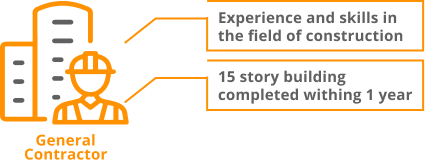
The Trouble Starts
The contractor runs behind schedule, and realizes they will have to get in some sub-contractors otherwise the job won’t be finished in time. track. So the contractor hires sub-contractors.
Unfortunately the sub-contractors do a bad job. The standard of work does not meet the quality standards of the work in progress.

The owners are held responsible by legal authorities for breach of laws. This results in the demolition of the building. Is the contractor liable for the sub-contractor’s bad worksmanship?
You’re in Deep
Yes, you are. It is normal for the general contractor to hire sub-contractors. There are many companies who have experienced workers to do the work better than you. However, it is the duty of general contractor to oversee and monitor the activities of sub-contractors.

In this example, the general contractor’s negligence has resulted in the client incurring a heavy financial losses. In such circumstances there would be very strong case of professional negligence against the general contractor. The owners can (and will) pursue a claim of damages against them.
Could this happen to you?

Professional Liability Also Includes Fraud
Fraud may suspected on the grounds that the contractor deliberately misrepresented the quality of work. It must be proved that the contractor had no intention of carrying out the design and specifications as agreed.
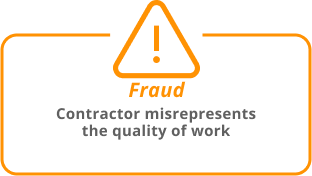
Professional negligence is based on proving the contractor represented something as true, but had not factual information to believe the representation to be true.
Know Your Rights
If you find yourself in similar situation, having sustained financial losses, you may be legally entitled to initiate a negligence claim to recover the damages suffered. However, there are expert law firms that can help you to sort out whether you have a real claim of negligence.
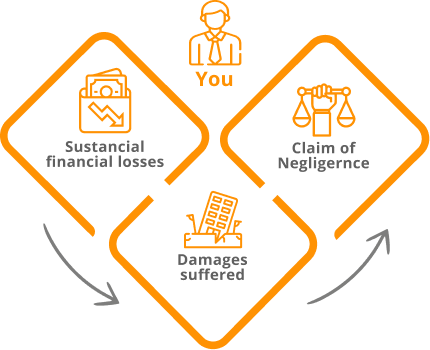
Professional negligence is a diverse and bit difficult term to define because it incorporate a diverse range of fields of expertise and a number of different and unique situations.
Many factors are taken into the context while determining whether the general contractor is guilty of professional negligence.
How to Protect Your Contracting Business
Professional Liability Insurance, sometimes called “errors and omissions coverage” is designed to defend and pay claims against actions taken that stem from your professional capacity and training.

Because we are construction insurance experts, we know the pressures you face. Professional liability shouldn’t be another thing to worry about. Give us a call. We’re here to help.
Every general contractor needs to protect their business from professional negligence with contractors liability insurance. To get a same day insurance quote click here.

